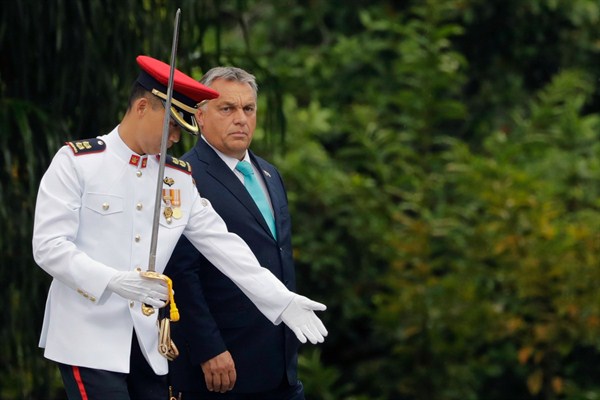Hungary’s controversial prime minister, Viktor Orban, is facing down international criticism and restoring a commanding position at home as the campaign gears up for next year’s general elections, which are due to be held by May. The pugnacious populist has also managed to capture some of the regional and global zeitgeist in the era of U.S. President Donald Trump, making common cause with hard-line nationalists around him and seizing on the aftermath of the 2015 migrant and refugee crisis.
However strong he appears, though, Orban’s power in Hungary is in no small part thanks to a divided and discredited opposition. And for all the attention, Hungary’s supposed leadership of euroskeptic countries in Central and Eastern Europe has been exaggerated. Orban’s populist grandstanding even risks leaving his country on the political fringes in the not-too-distant future.
Polls universally show Orban’s Fidesz party—variously described as conservative, far-right and populist—as a runaway leader ahead of the vote next spring, with the only disagreements being over its lead. Fidesz’s main rival is the far-right Jobbik, which in recent years has moved somewhat toward the center, cosmetically at least, while Fidesz has tacked to the right. The other parties—the Hungarian Socialist Party, its offshoot Democratic Coalition and a variety of liberal parties—are all in the doldrums.

